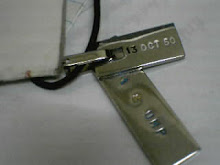The alarming figures with regard to the number of deaths caused by car accidents that involve alcohol have prompted state governments and the Federal Government to take critical steps to prevent fatalities. One of these steps is to lower the allowable blood alcohol concentration (BAC) from 100 mg/dl to 80 mg/dl. However, such measures have proven to be inadequate as more recent figures show a dramatic increase in deaths caused by car accidents involving alcohol. More stringent laws have to be enacted to prevent these accidents, which may include imposing stiffer penalties for DUI or driving under the influence cases.
Recent figures show that instead of the expected decrease in the number of alcohol related deaths as a result of imposing a lower BAC, quite the opposite has occurred. In the last ten years, around 250,000 people died in alcohol related car accidents in the United States. Figures show that 16,000 people were killed in the year 2000, due to alcohol related accidents. In 2004, that figured climbed to 25,000. This means that 500 people die every week and 71 people die everyday in alcohol related car accidents.
In addition to these figures, estimates show that the economic and societal cost of alcohol related car accidents are very high. Alcohol impaired drivers cost American taxpayers about 21 to 24 billion dollars a year. Other studies show a much higher figure of $136 billion dollars is spent on alcohol related accidents. This is in addition to the huge insurance costs of alcohol related accidents and the injury, destruction and death that come with them.
State and Federal Governments have lowered the allowable BAC that is aimed at lowering the number of deaths caused by drunk driving. However, recent figures show that there has been a dramatic increase in the number of deaths caused by drunk driving. Given this, there may be a need for more stringent interventions, such as imposing stiffer penalties for DUI cases. This has the potential for more effective prevention of deaths from accidents, alcohol-related traffic.


0 Responses to "Alcohol Accidents"
Post a Comment